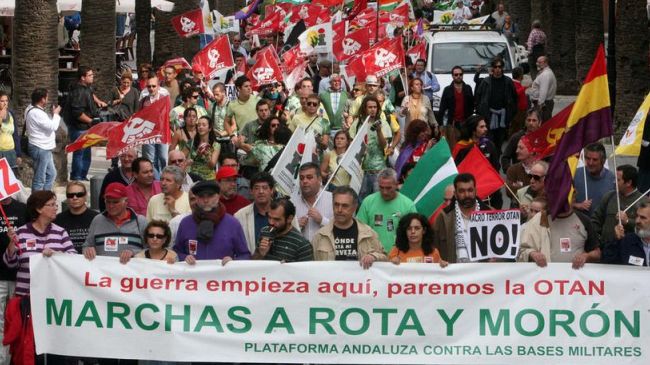1953 Pact of Madrid
After the signing of the Pact of Madrid, there was bipartisan resentment in Spain towards the United States’ military involvement in the country.
Widely publicized photo of President Eisenhower and Franco.

Francoist leaders felt that they were given insufficient military supplies in return for basing rights. Also, the Spanish military was restricted from using American equipment in defending Spain’s North African territories in 1957. Franco and his supporters resented the US for “slighting” them in their military arrangements as well as for its democratic form of government.
On the other hand, the parties in opposition to Franco and his regime perceived the United States and their military involvement as support of Franco’s fascist regime and, in turn, as an obstacle to the democratization of Spain. The resentment caused lasting effects in Spain, even after the democratization of the country in 1975.
Occasionally, there were popular protests against events or individuals who were reminders of US support for Franco’s dictatorship, like the large demonstration held during President Reagan’s visit to Spain in 1985. Many still hold on to this view of the US as a tie to Franco and his fascist regime, and therefore view negatively US military use of Morón and Rota, as well as the American presence in the country these bases produce.



